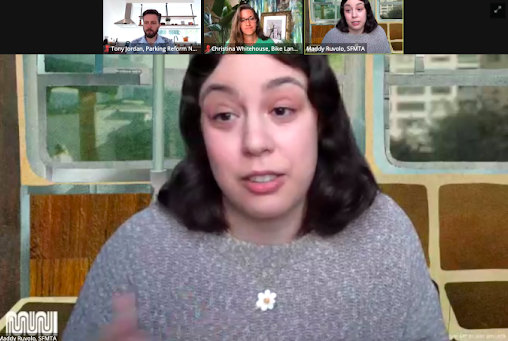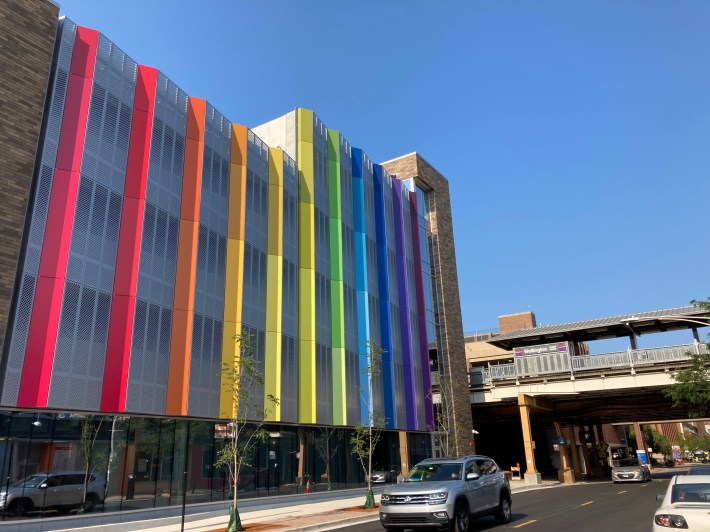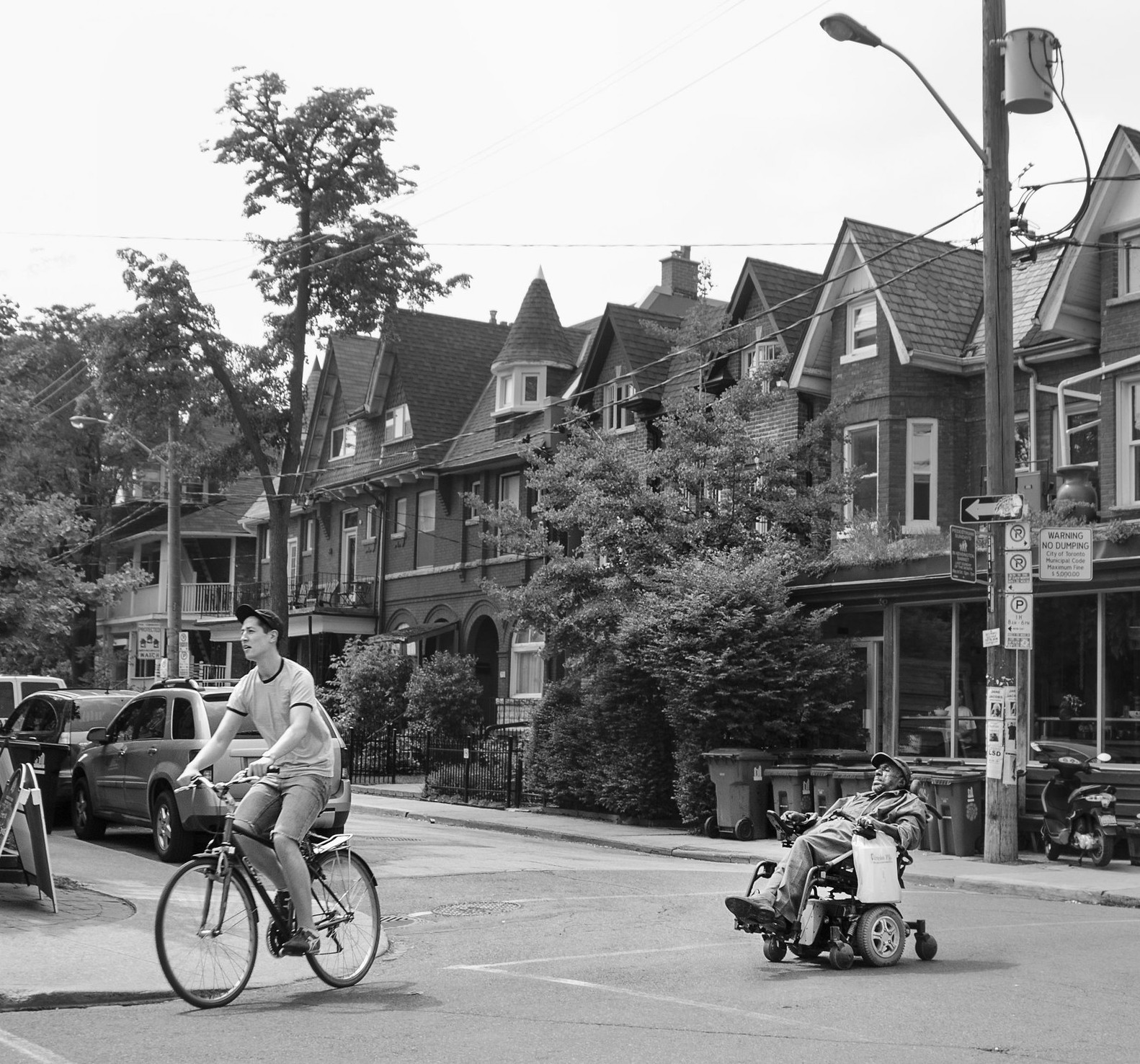The online 2021 Shared Mobility Conference, hosted by the Shared-Use Mobility Center, concluded on July 27 with a the seminar "Innovators, Agitators and Activists: Moving Shared Mobility Politics." Moderated by SUMC program associate Nate Seeskin, the panel featured Christina Whitehouse (Bike Lane Uprising), Tony Jordan (Parking Reform Network), and Maddy Ruvolo (San Francisco Municipal Transportation Agency.) The participants discussed strategies for building support for transit and shared-mobility systems in the current polarized political climate.
Ruvolo, a transportation planner on the Accessible Services team at SFMTA, who has a disability herself, noted that people with disabilities are more likely than the general public to be low-income and non-drivers. As such, she said, better public transportation and shared-mobility options are particularly useful for the disability community.
At the same time, Ruvolo feels "disabled people are used as a political football in transportation planning conversations. When a disabled person does mention that they may need to drive somewhere, the automatic response from a lot of folks in the transportation community is to sort of shut down, [dismissing] the person as reactionary. Disabled people, like all people, are in our car culture... [we need to be] honest about areas where needs do align and also where needs do not align."
Ruvolo added that while the disability and cycling communities sometimes have conflicts when it comes to transportation planning priorities. "A lot of disabled people, when they're thinking about transportation, they're really trying to get access to a lot of really basic mobility options that I think able-bodied people take for granted. Cyclists need to come into that conversation aware of this broader context."

Furthermore, Ruvolo said, people with disabilities and folks who ride bikes also have many shared interests in terms of creating safer conditions for vulnerable road users. Therefore, these factions should be collaborating. "We really need to work together and build trust so people can work together to build a broader coalition."
Noting that the 31st anniversary of the Americans With Disabilities Act just passed, Ruvolo added: "That's a long time, and yet so many of our transportation systems are still inaccessible."
"We need to dismantle some of our car infrastructure," Ruvolo argued. "So often, disabled people are the ones who are asked to compromise. I think people are wary, and not necessarily trusting, that we could build something better." She also emphasized the need for better maintenance of sidewalks and elevators at train stations to ensure ADA accessibility.
Ruvolo asked Whitehouse, who runs Bike Lane Uprising, a website for documenting bike lane obstructions, how has she worked to build bridges with the disability community. Whitehouse replied that bike lanes are in effect micro-mobility lane, that can be used by anyone on wheels, including wheelchair users and electric scooter and hoverboard riders. "Micro-mobility doesn't really roll off the tongue. It started as 'bike lane,' and it just has kind of stayed that way. We know bike lanes are being used by all these types of people."
"There's this misconception that bike lanes are bad for people with disabilities, but you can get further on a bike if you have a pain and it's difficult to walk," Whitehouse added. "A lot of people who rely on it that are overlooked. We've created this brand that speaks to all the different types of cyclists, just being aggressively welcoming and not saying you need to be a certain kind of way."

Ruvolo asked Jordan, about his organization's tenet that reducing the amount of land dedicated to car parking would be good for society, which many Americans find counterintuitive. "I definitely have met the same kind of glazed eyes and puzzled looks," Jordan replied. "I try to point out the cost and the space it takes up." He also notes that excess parking induces car trips, contributing to traffic jams.
Jordan said these talking points "soften" skeptics of the need for parking reform. "It's harder to write an angry letter about parking, once they recognize the impact it could have on the housing supply."




